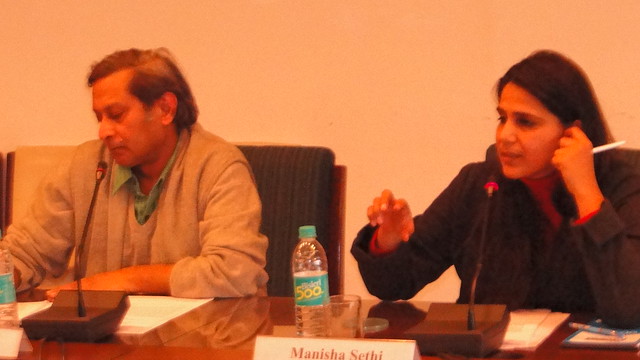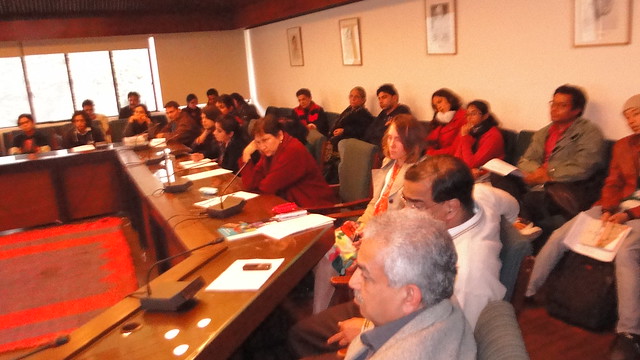By TwoCircles.net Staff Reporter,
New Delhi: A talk titled ‘Death by Encounter: Strategies of Impunity’ was held at Nehru Memorial Museum and Library (NMML) on January 10. Manisha Sethi, a Fellow at NMML was the speaker of the event. A rich and thoughtful discussion followed issues ranging from extra-judicial killings, impunity given to armed forces, role of judiciary, institutions and popular culture in promoting a nebulous vision of justice.
“Whenever we have discussions on police reforms we see that there is no focus on impunity, all we hear is that how much money we are going to spend on modernization of police forces so that we can have replace old lathis with nice plastic lathis,” she commented while talking to the participants in the programme.

Manisha Sethi (right)
Among things discussed in the talk was how shallow response NHRC gets from the government on its findings. For instance, National Human Rights Commission issued its guidelines on encounter killings in 1997, in response to APCLC’s complaint about 295 encounters in Andhra Pradesh. And yet, impunity is rampant. NHRC guidelines are followed rarely, if at all; the Supreme Court stayed the AP High Court judgement.
“There exists a black hole in this idea of judgement that since the person is killed in an encounter he/she must be guilty,” she said.
While pointing out at Batla House encounter, on which JTSA has done great deal of work under her supervision. she said that the state rushed towards closure in haste of creating a state of order with the cry of satisfying collective conscience which rests on narrative of giving in to the popular anger which might not necessarily be just.
The talk also raised the issue of public consensus being created by the use of popular culture like films like Ab Tak Chappan which glorifies extra-judicial killings, selective coverage, a coercive form of law enforcement, vilification of a particular community through various media.

Referring to JTSA’s latest report Guilt by Association: UAPA Cases from Madhya Pradesh, she said that many cases have shown that judiciary also gets complacent in this narrative as a simple material in Urdu can be presented as a jihadi material.
There is a lack of political initiative towards police reforms and it has to change it has to be political which is not there.

